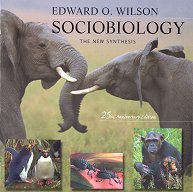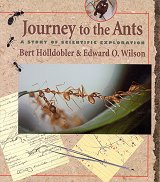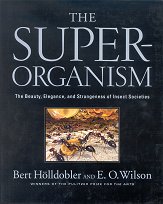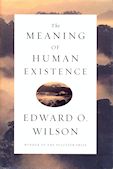Harvard University Press is proud to announce the re-release of
the complete original version of Sociobiology: The New Synthesis,
now available in paperback for the first time.
When this classic work was first published in 1975,
it created a new discipline and started a tumultuous round in
the age-old nature versus nurture debate.
Although voted by officers and fellows of
the international Animal Behavior Society
the most important book on animal behavior of all time,
Sociobiology is probably more widely known as
the object of bitter attacks by social scientists
and other scholars who opposed its claim that human social behavior,
indeed human nature, has a biological foundation.
The controversy surrounding the publication of the book
reverberates to the present day.





